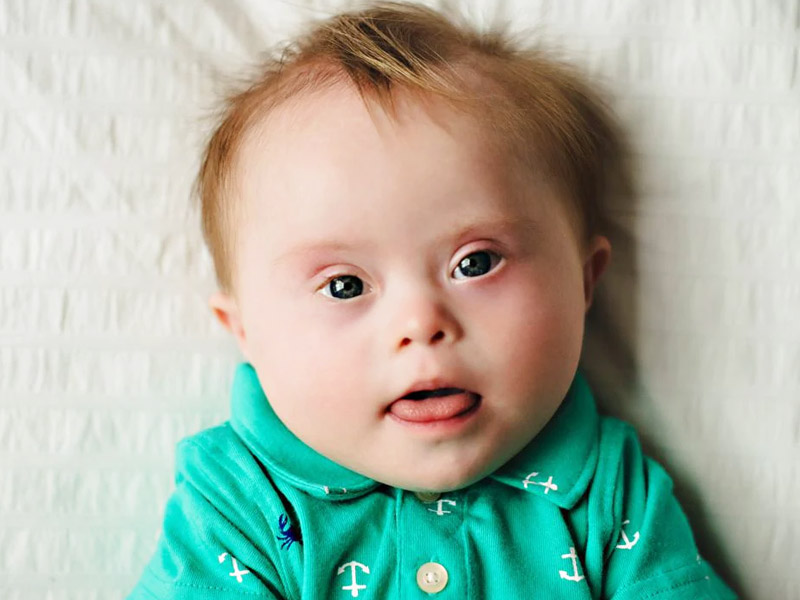
One of the critical services affected by the pandemic was general healthcare. With the lockdown in place and as hospitals swung into full gear to cope with the influx of COVID cases, many people started avoiding medical services. This affected those who needed regular healthcare, such as children with down syndrome. Children with down syndrome often need therapy and training to manage their disabilities. Access to these resources took a temporary setback during the pandemic.
Table of Content:-
The good news is that with normalcy returning, all such services have also resumed. Dr Shabbir Chamdawala, General Paediatrician, Saifee Hospital explains all about the down syndrome in the simplest of terms for Onlymyhealth.
What is Down Syndrome?
Down syndrome is a condition where a child is born with an extra chromosome. A baby receives 23 pairs of chromosomes from his/her parent, making it 46 chromosomes in total. Half of these are from the mother and half from the father. In the case of children with Down syndrome, the 21st pair does not separate properly, and so, and the baby has an extra partial chromosome. Instead of two of a pair, they have three. Hence, they are also known as trisomy 21. Similar triple chromosomal condition can also occur with the 18th and 13th chromosome. In the former case, it is known as Edwards’ syndrome (T18) and in the latter, it is known as Patau’s syndrome (T13).

This genetic anomaly can cause mental, physical, and developmental disabilities. These disabilities are lifelong and can also shorten their lifespan. Unfortunately, the survival rates are low in children with Edward’s and Patau syndromes. They are also likely to have severe disabilities. Children with Down syndrome show a much wider spectrum of disabilities. With advancements in healthcare support, both the lifespan and quality of life for children with Down syndrome have improved significantly. Many of them go on to live a happy and fulfilling life.
Detection of Down Syndrome
Today Down, Edward’s, and Patau syndromes can be detected during the pregnancy through a genetic screening test. Between the 10th and 14th week, a combined test is conducted through an ultrasound scan and a blood test. If the pregnancy is too far on, a quadruple test, which is a blood test, can be performed between the 14th and 20th weeks.
In case there was no such screening test, the diagnosis usually occurs at birth. Babies with Down syndrome have distinct physical features that can alert a pediatrician of the condition. These include flat facial features, atypical and small ears, small head, short neck, poor muscle tone, and slanting eyes. In such cases, doctors usually proceed very cautiously in informing the parents of the condition. They later help the parents prepare themselves to lifelong care as children with Down syndrome need some degree of support throughout their lives.

Caring for Children with Down Syndrome
Although people with Down syndrome do have more health challenges, such as developing hypothyroidism or heart defects, their overall expectancy has improved significantly in the last few years. With better institutional support, and depending on the severity of the condition, they can also live an independent life.
Much of this depends on the child’s caregivers, who are typically the parents. Caring for a child with Down syndrome can be challenging. Hence, parents must develop that strength of will and tenacity to meet any problem. They have to maintain a close relationship with medical professionals as the child may need regular monitoring. Today we also have trainers and therapists who can make a huge difference in dealing with physical/mental/developmental disabilities and improving such children's quality of life.
Also Read: Check Out These 9 Useful Natural Ways For Restless Legs Syndrome
Children with Down syndrome are some of the most innocent people on the earth. Because they have no guile or deception, they rarely display our negative traits. Caring for a child with Down syndrome may be challenging, but it is also one of the most rewarding aspects for many healthcare professionals.
With inputs from Dr Shabbir Chamdawala, General Paediatrician, Saifee Hospital
Read more articles on Other Diseases
Also watch this video
How we keep this article up to date:
We work with experts and keep a close eye on the latest in health and wellness. Whenever there is a new research or helpful information, we update our articles with accurate and useful advice.
Current Version